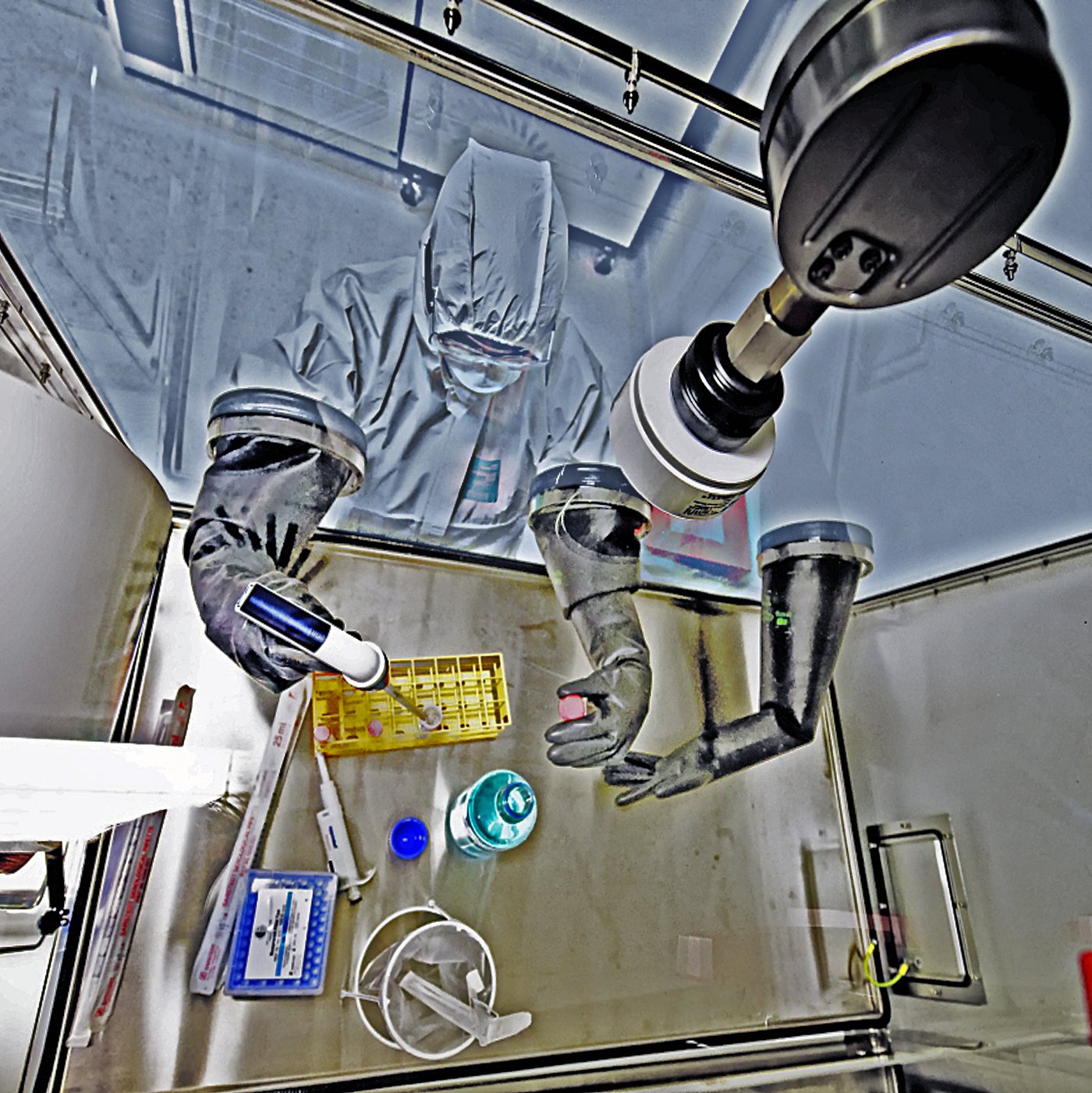Explore pathogens
How do pathogens work?
Systems, cell and structural biology with state-of-the-art technology
In basic research on tropical pathogens, the BNITM pursues a holistic research approach. The focus is on both the pathogens themselves and their interactions with the host organism at the atomic, molecular, cellular and systemic level. The rapidly developing biochemical and bioinformatic methods open up new and promising avenues. Simultaneous investigations of a multitude of individual elements are now possible (genome, transcriptome, proteome, metabolome analyses), including their computational merging and modulation (systems biology), as well as experimental testing (e.g. by altering the pathogen genome). The infection process can be elucidated in its entirety, thus covering the entire spectrum from the investigation of minute molecular structures to innovative clinical research.

The BNITM will continue to strengthen the research capacity of its internationally recognized research groups, which necessarily focus on special topics, and set up additional systems-oriented teams. These research efforts target the use of innovative approaches to combat tropical diseases. Unique infrastructures allow experimentation with pathogens of the highest safety level, to establish suitable animal models for highly dangerous diseases, to breed carrier mosquitoes and to conduct infection experiments. On this basis, the BNITM can carry out innovative basic research at the highest level.
The BNITM's expansion into the Centre for Structural Systems Biology (CSSB) on the DESY campus provides access to the world's best imaging techniques. They enable previously unimaginable research projects to be carried out to elucidate details from the individual molecular structures of the pathogens, up to the complex molecular interactions between host and pathogen.
Close cooperation with partner institutions in endemic areas allows the investigation of well characterized clinical samples. This creates the prerequisites not only for conducting studies in the laboratory and in animal experiments, but also for testing their relevance under clinical conditions. The close interaction between the research units in the institute will contribute to gaining fundamental insights into the basics of the infection process. This will allow a deeper understanding of diseases in order to open up new ways of disease prevention and control.
Contact
- Dr Anneke Novak-Funk
- Head of Science Management
- phone: +49 40 285380-266
- email: novak-funk@bnitm.de
Downloads
- Scientific report 2023-2024 ( PDF 9 MB )
- BNITM Flyer ( PDF 5 MB )
- Organization Chart BNITM ( PDF 3 MB )
- BNITM Strategy 2025 ( PDF 22 MB )







